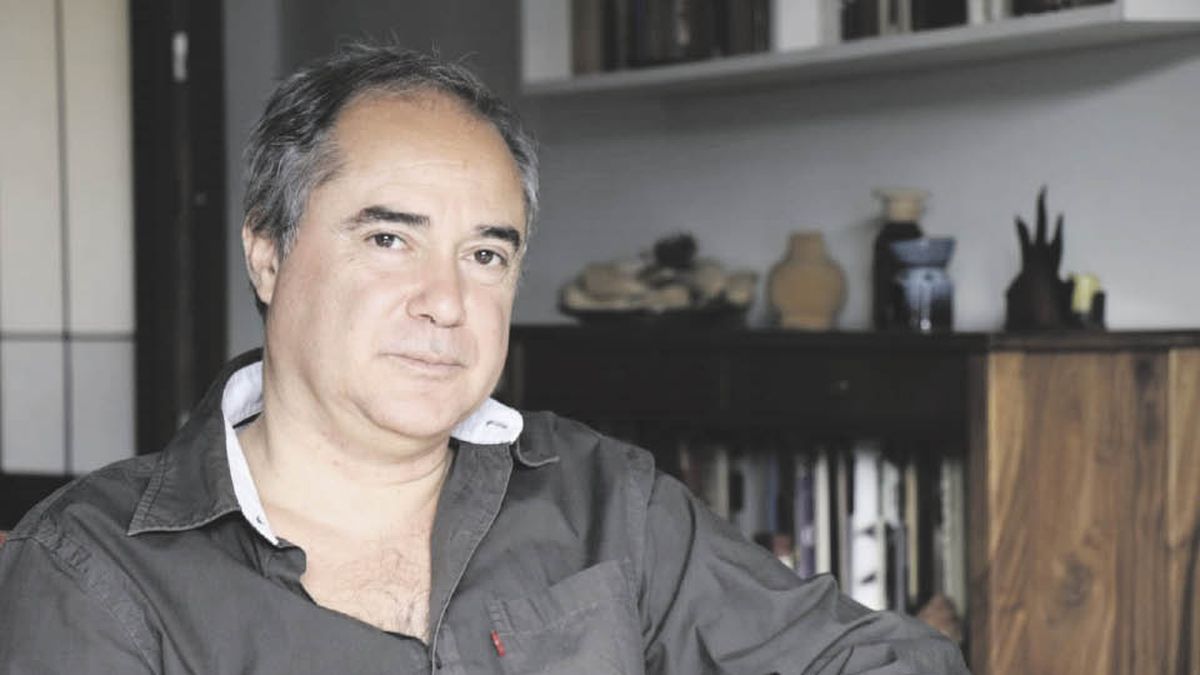Gustavo Ferreyra: Piquito de Oro drifts towards messianism. It is a form of madness, but it is never without its reasons; I don’t feel like he’s ever going to delirium. There is a lot of talk in Argentine literature about delirium, perhaps a little because of Arlt, but I don’t feel that way about Piquito, although he obviously falls out of the mold.
Q.: In the most recent novel, you escape from prison to end up in a psychiatric hospital…
GF: It is the saddest step because in prison he does not have a bad time, he has disciples, he has his success, he forms his religious group, but it is true that in the last stretch it is not like that. The “in the shadows” of the title, is that being in jail and then in the psychiatric hospital, where he really falls into hardship, into misfortune. In the shadows she reflects tirelessly on the human desire and ability to survive despite everything. In the second novel of the series, “Piquito a Seras”, he falls into mysticism when he is in the judicial process in which he is accused of the murder of Dr. Cianquaglini. The messianic drift takes her to the end, with raptures of rationality where she seeks to leave that behind. It is Leonardo’s narrative voice, with his diatribes and epistles, which do not have a very fixed framework of rationality, that carries the character. That narrative voice that drives Piquito allowed me to discover things that are beyond myself, which leads to laughing because one is surprised, because what is said comes from somewhere else. Piquito’s verbosity, which can open up to irony, poetry or aphorism, is always surrounded by another narrative voice, that of a third person, which allows him to reach solid ground by putting Piquito’s voice on pause.
Q.: Why, along with the crisis of 2001, Kirchner’s irruption in a meeting or the conflict with the countryside in 2008 put Piquito’s mystical speculations?
GF: It is the intersection of the instant and the millennia. It is the intersection with the social-historical that ends up being more decisive than what Piquito aspires to at some point. That potential messiah that is Piquito is determined, swallowed up, in an obviously inevitable way by historical events. It is the constant tension between the sacred explanations of the human and the rustic events of life. Thus, despite the confinement to which he is subjected, the most everyday appears, politics, the most immediate, what is being experienced at the moment. Piquito faces this tension, who aspires to what all messianism aspires to, which is to get out of the nightmare of history.
Q.: Isn’t that opposed to the fact that professionally Piquito is a sociologist?
GF: Being a sociologist for Piquito is a kind of dam that he tries to transcend. Sociology places him in the era, in the century, in time, and he is more of a metaphysician than a sociologist, but the era is always capturing him. Piquito is, ideologically, a “Jesusist”. He realizes that in “The Pilgrims at the End of the World”, which is the novel by Bruna Yapolsky, Piquito’s disciple and muse, a branch or spin off of the Piquito saga. Being of Jewish origin, Bruna seeks to approach Christianity, and as she moves forward she realizes that in approaching Christianity she finds Judaism again, and seeks to leave that Jewish Christ, and seek another Jesus, who is not the Christ.
Q.: Does Piquito in his course go from Trotskyism to mysticism?
GF: Piquito is very peculiar as a Trotskyist militant. It is a stage, that appears in the first novel, in “Pequito de oro”, and he never fully believes it. He is in the Polo Obrero more in an existential way than in a militant way. What interested him were the mobilizations, sitting on the asphalt talking with the girls who are there like him picketing, who know nothing about Marxism or Trotskyism, and who chat with him with more erotic than political intentions. Piquito began to be constituted from a cross between Marx and Nietzsche and from there he goes towards a vitalist philosophy that offers him a connection with the religious. From there it is that he departs from Marxism and from what he points out as the smallness of the time. He thinks that Marxism is a spotlight that cuts out a piece of reality with great rationality, but there is a dark scene around which he does not realize, and in that darkness is where what interests him most is.
Q.: Have you written twelve books?
GF: Thirteen published, of which twelve are novels. I have a novel already written that is the end of the saga, where Bruna and Piquito finally meet again. Bruna has been in a group of Catholic pilgrims, and Piquito is now in the south, near El Bolsón. They regain contact, which they lost for years, first through video calls and then with Bruna’s trip from Buenos Aires to El Bolsón. I also have two finished novels.
Q.: And now you are writing another one?
GF: Yes, the story of an Anabaptist pastor.
Source: Ambito
David William is a talented author who has made a name for himself in the world of writing. He is a professional author who writes on a wide range of topics, from general interest to opinion news. David is currently working as a writer at 24 hours worlds where he brings his unique perspective and in-depth research to his articles, making them both informative and engaging.




